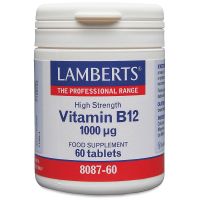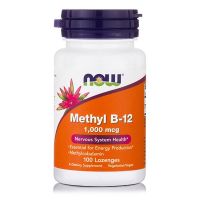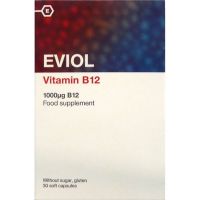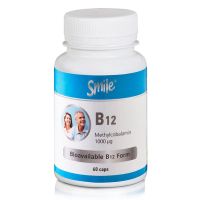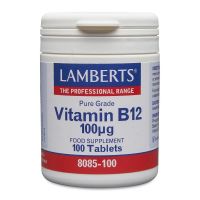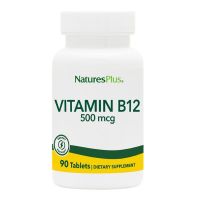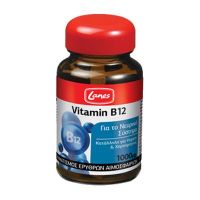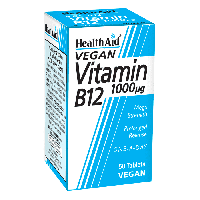-
Free shipping
with purchases
over €39 - 100% Refund withing 14 days
- Free Mini products
-
2310 44 44 22
Telephone service
and orders
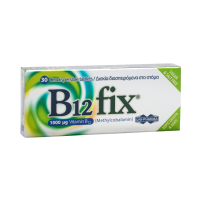
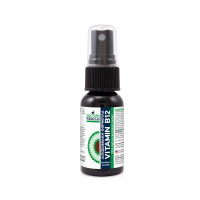

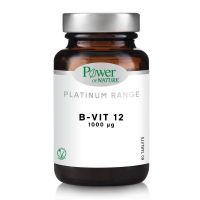
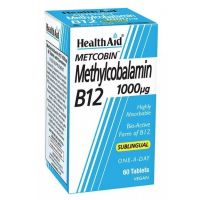

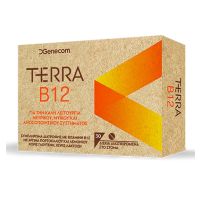


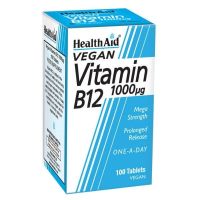
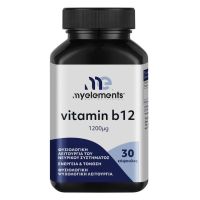
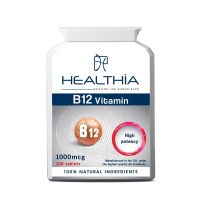
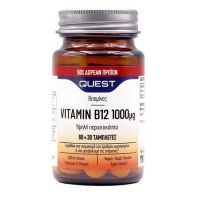
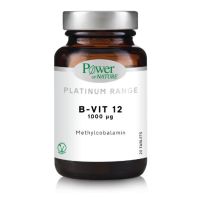

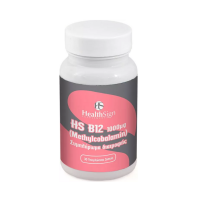
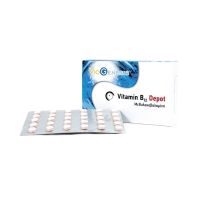
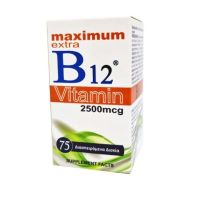
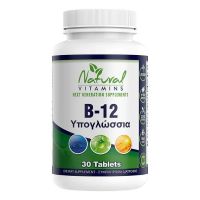
Information - Vitamin B12
What is Vitamin B12?
Vitamin B12 or cobalamin is a water-soluble vitamin that belongs to the B vitamin complex. It is a cofactor in many enzyme reactions and in combination with vitamins such as iron or folic acid it contributes to the synthesis of DNA, the health of the nervous system and the production of energy .
Benefits
Vitamin B12 has many health benefits:
- Contributes to normal energy metabolism in the body*
- Contributes to the normal functioning of the nervous system*
- Contributes to the normal metabolism of homocysteine*
- Contributes to normal psychological function*
- Contributes to the normal formation of red blood cells*
- Contributes to the normal functioning of the immune system*
- Contributes to the reduction of tiredness and fatigue*
- It is also important for the process of cell division.*
Foods high in it
Foods rich in this vitamin are:
- dairy products,
- meat (liver, chicken),
- seafood (mackerel, tuna, herring)
- and soy.
Deficiency symptoms
B12 deficiency may have symptoms such as:
- Feeling tired
- Loss of appetite
- Gastric atrophy
- Neuromuscular pains
- "Fallen" immune system
This can lead to problems in the nervous system, macrocytic and megaloblastic anemia. Deficiency is particulary common in:
- vegetarians and vegans, as they prevent smaller amounts due to their diet
- and in the elderly due to reduced absorption from the intestinal tract
Recommended Daily Intake (RDI)
The recommended daily dosage for vitamin B12 is:
- For infants and children under 13: 0.4 mcg-1.8 mcg/day
- For adolescents and adults: 2.4 µg/day
How and when is it taken?
It is recommended to be taken according to the instructions of the manufacturing company. It is most commonly taken after a meal.
Precautions for use, interactions and side effects
B12 deficiency is checked with a blood test, and its administration (in injectable pharmaceutical form, or in a dietary supplement) in therapeutic doses should be done under medical supervision.
Taking it during pregnancy and breastfeeding is safe with medical supervision. Alcohol and antibiotic treatment may reduce its absorption in the body.
Overdose - hypervitaminosis causes side effects such as:
- skin irritations
- hypertension
- arrhythmias
- acne flare-ups
- diarrhea
*The above information about Vitamin B12 are official health claims from the European Food Safety Authority (EFSA).
Liability Disclaimer
Vita4you informs you that nutritional supplements are not a substitute for a balanced diet, a healthy lifestyle or medical advice/opinion, are not medicines and are not intended to prevent, treat or cure human disease.
Vita4you makes every effort to ensure the accuracy and scientific validity of the information provided on the website. In case you find any discrepancy or have any question about the content please contact us.

